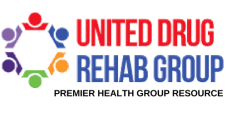Fetal Alcohol Syndrome
Fetal Alcohol Syndrome (FAS) is a life-altering disease that occurs in people whose mothers drank alcohol while pregnant. Babies with FAS are born sickly and small, and their physical growth throughout life is stunted. These individuals will also suffer from central nervous system complications. People with FAS might have behavioral, mental, physical, or learning disabilities, and are sometimes characterized by distinctive facial features. FAS is a preventable disease that unfortunately persists in our society when pregnant women don’t receive the specialized treatment they need at addiction recovery facilities.
FAS has lifelong implications. Babies with FAS may have low birth weights, problems hearing and seeing, and hindered development. Toddlers and young kids have hyperactivity, poor memory, problems with fine and gross motor skills, and a short attention span. As children with FAS enter school, they may struggle with keeping up and following simple instructions. Teenagers have poor impulse control. As adults, people with FAS often need help with daily tasks such as money handling, transportation, and finding housing. Individuals with FAS will require specialized medical care their whole lives.
Today, Fetal Alcohol Spectrum Disorder, or FASD (the umbrella term within which FAS is the most severe diagnosis), is the leading cause of brain damage or intellectual disability in the U.S. The prevalence of FAS is about 1 per every 1,000 live births, comparable to autism, and some estimates say that translates to 40,000 babies born with FAS each year. The most wrenching part of this disease is that it’s wholly preventable, but pregnant women are not always able to receive care through drug rehab for their drinking.
When a woman drinks alcohol during pregnancy, it affects her fetus in drastic ways. Alcohol prevents the fetus’s vital organs from getting adequate oxygen and nutrition, and kills cells that would eventually form the basis for the brain, organs, and central nervous system. Tragically, sometimes the damage can be done in the first few weeks of pregnancy, when a woman doesn’t even know she’s pregnant. The greatest risk of harm comes from binge drinking (four or more drinks in a row for women), but regular drinking and even the occasional glass can have extremely detrimental effects. According to the CDC, 10% of pregnant women reported drinking any alcohol, and 3% reported binge drinking in the past month. These women are at a high risk of harming their fetus, and should seek care in an addiction treatment facility right away. However, barriers such as stigma often prevent mothers from getting help.
If you or someone you love is addicted to drugs or alcohol today, please call or email United Drug Rehab Group right away. We’ll help you find a luxury drug rehab program that fits your needs and will allow you to recover in comfort and privacy. Learn strategies for fighting cravings and dealing with stress, attend individual and group meetings, and develop a tight-knit community of supportive peers and mentors. Please call us today to save a life, and establish a solid foundation for recovery.



